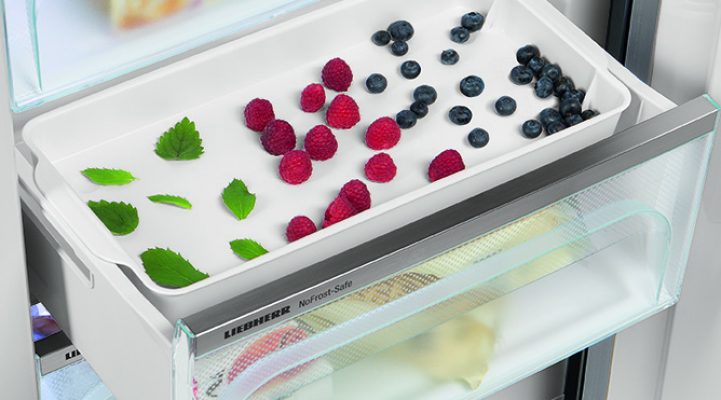Raspberries, alongside strawberries and bananas, are among the nation’s favourite fruit. They’re in season here in the UK from around June until as late as October. Outside of these months, raspberries are imported from countries such as Spain, Morocco, and the USA. So, why are raspberries so good for you and what are the health benefits of raspberries? What’s the best way to keep raspberries fresher for longer? Read on to find the answers to these questions and more.
Raspberries – not actually berries after all
Botanically speaking, raspberries (Latin: Rubus idaeus) aren’t actually berries at all! They are, in fact, part of the rose family (Latin: Rosaceae) like strawberries, and raspberries are drupes because they don’t have a pericarp that contains several pits/seeds. Instead, they have multiple little aggregate fruits that each contain one pit/seed. Furthermore, there are two types of raspberry: summer raspberries and autumn raspberries (repeat-bloomers, which grow and fruit in a single season).
Why are raspberries good for you?
If you’re lucky enough to have a raspberry bush in your garden, it turns out that you practically have your very own backyard pharmacy. Raspberries are rich in vitamins, trace elements, and secondary plant compounds. As a result, they’re said to have antibiotic, appetite-stimulating, diuretic and purgative properties. They are also believed to stimulate the body’s defences, help support the immune system and boost metabolism. In addition to vitamins A and B, they contain high levels of vitamin C, and the acid in raspberries is predominantly citric acid, which influences the urea cycle with a diuretic and cleansing effect. And, with many active acids, including ‘natural aspirin’ salicylic acid, pectin, and several tannins, raspberries are thought to help the liver to remove toxins and have antipyretic properties. On top of all that, the fibre in raspberries means they’re also a great aid to digestion.
How many calories are there in raspberries?
Raspberries are very low in calories, coming in at just 25kcal per 100g. That’s even less than strawberries, so feel free to indulge!
Tips for storing raspberries
Obviously, raspberries taste best when they’ve just been picked, and normally they have a shelf life of one day in a conventional refrigerator. Liebherr’s BioFresh appliances will keep them fresh for up to three days longer and, if you want to freeze them, Liebherr’s convenient freezer tray is the best thing for the job. Most likely you’ll be familiar with the problem of frozen raspberries sticking together and losing their visual appeal on defrosting, but with the freezer tray, raspberries can be spread out and frozen individually, and easily portioned later – particularly helpful if you want to use them to decorate cakes or milkshakes.

If you enjoyed this article please feel free to share in across social media. You can find us on Facebook, Instagram, Twitter and Pinterest.